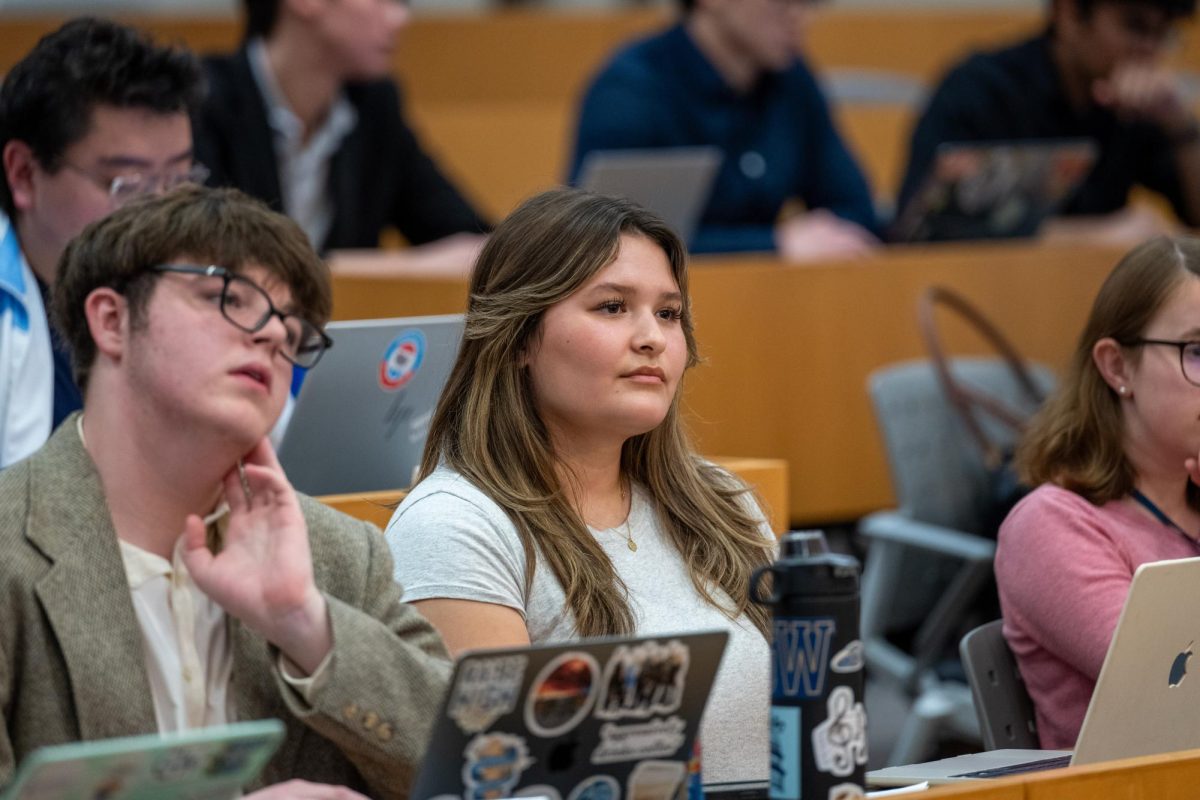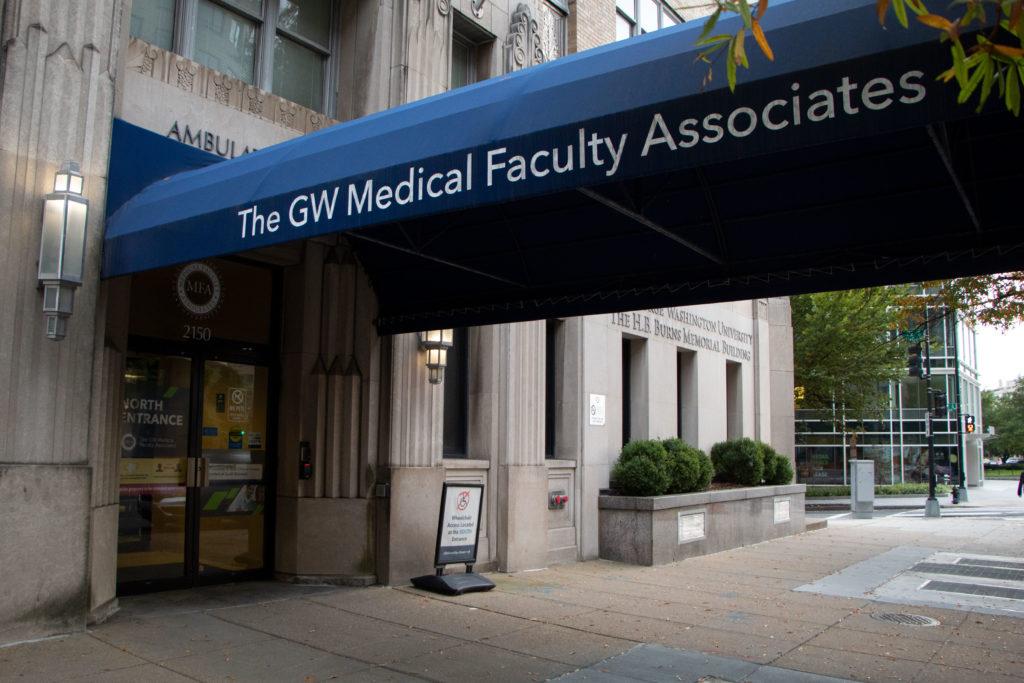GW’s Greek-letter community will add two new members next fall, as members of the Interfraternity Council and Panhellenic Association that head fraternities and sororities on campus voted in favor of expansion.
The Panhellenic Association voted March 7 to reverse a decision last year that rejected expansion, and the IFC approved Pi Kappa Phi fraternity for expansion in January.
The move will help improve Greek-letter life at GW, said Michael Gargano, assistant vice president of Student and Academic Support Services.
“It has been my vision to create at (GW) a model Greek community that can then become the envy of all other Greek institutions,” Gargano said. It is possible for urban universities to have strong Greek communities, he said.
Gargano said expansion is vital to the advancement of fraternities and sororities at GW because it will give more options to students who are not involved with Greek-letter life. At the same time, he said GW must bring more historically black, Hispanic and Asian chapters to campus.
This “vision” will benefit from the creation of a “Greek Village” on the corner of 23rd and G streets across from the new Health and Wellness Center site, Gargano said.
Gargano said he would have a better idea of the plans for the new community in the next few months because the village is still in the conceptual stage.
“Whatever we end with will be an incredible shot of adrenaline for the Greek community,” Gargano said. The new community will provide space for most fraternities and sororities to hold meetings, social events and even reside, he said.
The Panhellenic Association voted March 7 to accept a new sorority, reversing last year’s vote to defer expansion because of a lack of strength of the chapters on campus, Panhellenic Association President Nini Khozeimeh said. Five of the seven member sororities voted to add a chapter.
Six sororities were chosen from a pool of about 15 groups to make presentations to the Panhellenic Association April 23 and 24. Khozeimeh said the Panhellenic Association will select one sorority among Alpha Sigma Alpha, Alpha Phi, Alpha Xi Delta, Delta Zeta, Kappa Delta or Gamma Phi Beta to join the group by the end of the semester. GW will then review the recommendation and decide whether to adopt the new chapter. The Panhellenic Association will then take its recommendation to GW for approval.
Khozeimeh said heavy interest by students and national sororities, as well as the growing number of female students at GW motivated the Panhellenic Association’s vote to expand the Panhellenic community.
Khozeimeh said six out of seven chapters on campus are above the Panhellenic Association’s 65-member limit on membership, and each semester at least three students contact the Office of Greek Affairs about starting a new chapter.
Although the expansion plan passed without much opposition, Karin Swenson, former president of Delta Gamma sorority, said worries that adding another chapter could intensify competition to get good recruits.
“I see that this year we had a lot of girls who didn’t get a bid from a chapter or dropped out (during the recruitment process),” Swenson said.
If people dropped out because they were uninterested, then expansion would only create increased competition between the sororities for the same number of female students, she said. But if people dropped out because they could not find the “right” sorority, Swenson said expansion would help the community.
Khozeimeh said expansion adds diversity to the Greek-letter community.
Tracie Anzaldi, director of Greek Affairs, said the Panhellenic expansion will “help all the organizations within the Panhellenic community.”
Kappa Sigma fraternity President Jon Guidroz said the IFC is strong enough to take on another member fraternity. He said the recent success of the IFC’s “A Night To Give Back” community service project – at which fraternities made more than 3,000 sandwiches for the homeless – represents the current cooperative mood in the IFC community.
Joseph DePaola, president of Sigma Phi Epsilon, and Dan Ericson, president of Tau Kappa Epsilon, said they favor expansion as long as the new chapter can successfully colonize and help improve the GW community.
How a fraternity does when it comes to campus depends on the strength of its national organization, DePaola said.
DePaola said Sigma Phi Epsilon’s growth since it joined the IFC in October 1999 proves that expansion can be successful. Since its colonization, the chapter’s membership grew from 12 original members to 53, DePaola said.
“Expansion is good because it raises competition among fraternities that raises the bar for everyone on campus,” DePaola said.
DePaola said current IFC members have little trouble recruiting the number of quality students they want, and adding fraternities gives more options to students who are not involved with Greek-letter life.
“There’s a huge un-tapped interest here,” DePaola said.







